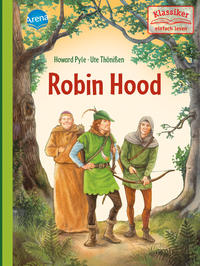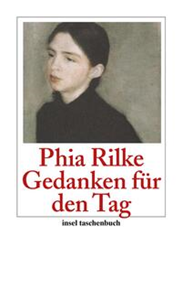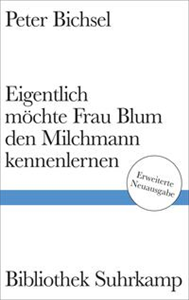Your Search Results
-
Howard J. Erlichman
The Roman Century: How a Determined People Launched the Greatest Empire in World History should be of interest to anyone who ponders the increasingly intense competition among the United States, China and Russia. The book places the spectacular Roman advance during a single “long” century (323-188 BCE) in a much wider geo-politico-economic context than existing works; explains how the Romans perfected a three-pronged blueprint of imperial conquest which had been devised by Philip II of Macedon; and incorporates timeless observations from the likes of Appian, Arrian, Clausewitz, Diodorus, Livy, Machiavelli, Plutarch, Polybius, Sun Tzu and Thucydides. The book also explains how the Romans generated a host of lessons to be studied by anyone concerned with the processes through which overseas empires are won and lost. The ebook edition is currently available on Amazon Kindle, Apple iTunes, B&N Nook and Rakuten Kobo.
View Rights Portal
-
Promoted Content
-
Promoted Content
-
 Trusted Partner
Literature & Literary StudiesFebruary 2010
Trusted Partner
Literature & Literary StudiesFebruary 2010New D.H. Lawrence
by Howard Booth
New D.H. Lawrence uses current and emergent approaches in literary studies to explore one of Britain's major modernist writers. The collection features new work by the present generation of Lawrence scholars, who are brought together here for the first time. Chapters include: Andrew Harrison on the marketing of Sons and Lovers; Howard J. Booth on The Rainbow, Marxist criticism and colonialism; Holly A. Laird on ethics and suicide in Women in Love; Hugh Stevens on psychoanalysis and war in Women in Love; Jeff Wallace on Lawrence, Deleuze and abstraction; Stefania Michelucci on myth and war in 'The Ladybird'; Bethan Jones on gender and comedy in the late short fiction; Fiona Becket on green cultural critique, Apocalypse and Birds, Beasts and Flowers; and Sean Matthews on class, Leavis and the trial of Lady Chatterley. New D.H. Lawrence will be of interest to all concerned with contemporary writing on Lawrence, modernism and English radical cultures. ;
-
 Trusted Partner
Literature & Literary StudiesFebruary 2019
Trusted Partner
Literature & Literary StudiesFebruary 2019ABBA ABBA: By Anthony Burgess
by Paul Howard, Andrew Biswell
ABBA ABBA is one of Anthony Burgess's most original works, combining fiction, poetry and translation. A product of his time in Italy in the early 1970s, this delightfully unconventional book is part historical novel, part poetry collection, as well as a meditation on translation and the generating of literature by one of Britain's most inventive post-war authors. Set in Papal Rome in the winter of 1820-21, Part One recreates the consumptive John Keats's final months in the Eternal City and imagines his meeting the Roman dialect poet Giuseppe Gioachino Belli. Pitting Anglo-Italian cultures and sensibilities against each other, Burgess creates a context for his highly original versions of 71 sonnets by Belli, which feature in Part Two. This new edition includes extra material by Burgess, along with an introduction and notes by Paul Howard, Fellow in Italian Literature at Trinity College, Cambridge.
-
 Trusted Partner
Literature & Literary StudiesApril 2000
Trusted Partner
Literature & Literary StudiesApril 2000Modernism and empire
Writing and British coloniality, 1890–1940
by Howard Booth, Nigel Rigby
This is the first book to explore the relationship between literary modernism and the British Empire. Contributors look at works from the traditional modernist canon as well as extending the range of work addresses - particularly emphasising texts from the Empire. A key issue raised is whether modernism sprang from a crisis in the colonial system, which it sought to extend, or whether the modern movement was a more sophisticated form of cultural imperialism. The chapters in Modernism and empire show the importance of empire to modernism. Patrick Williams theorises modernism and empire; Rod Edmond discusses theories of degeneration in imperial and modernist discourse; Helen Carr examines Imagism and empire; Elleke Boehmer compares Leonard Woolf and Yeats; Janet Montefiore writes on Kipling and Orwell, C.L. Innes explores Yeats, Joyce and their implied audiences; Maire Ni Fhlathuin writes on Patrick Pearse and modernism; John Nash considers newspapers, imperialism and Ulysses; Howard J. Booth addresses D.H. Lawrence and otherness; Nigel Rigby discusses Sylvia Townsend Warner and sexuality in the Pacific; Mark Williams explores Mansfield and Maori culture; Abdulrazak Gurnah looks at Karen Blixen, Elspeth Huxley and settler writing; and Bill Ashcroft and John Salter take an inter-disciplinary approach to Australia and 'Modernism's Empire'. ;
-
 Trusted Partner
March 1998
Trusted Partner
March 1998Der Schatz der Bibel
Moses und das Geheimnis des Heiligen Berges
by Blum, Howard / Englisch Price, Gordon H; Übersetzt von Salazar, Margit
-
 Trusted Partner
Literature & Literary StudiesMay 2016
Trusted Partner
Literature & Literary StudiesMay 2016Howard Barker's art of theatre
by Sarah Goldingay, David Rabey
-
 Trusted Partner
Literature & Literary StudiesOctober 2016
Trusted Partner
Literature & Literary StudiesOctober 2016Howard Barker's art of theatre
by David Rabey, Sarah Goldingay
-
 Trusted Partner
September 2010
Trusted Partner
September 2010Weihnachten mit Rainer Maria Rilke
by Hella Sieber-Rilke
„Was schlug mir das Herz, vom Geburtstag an, über den St. Nikolaus-Tag auf Weihnachten zu“, schreibt Rilke seiner Mutter mit 48 Jahren, „und wie steigerte sich diese seine Erregtheit immer noch mehr, am 21ten, am 22ten, am 23ten, bis am seltsam ausgesparten Nachmittag des 24ten […] dann die Glocken, die Glockenspiele eindrangen, die dem Aufspringen der Türen zuvorflogen durch die Dämmerung des unvergleichlichen Wintertags.“ Die hier von Hella Sieber-Rilke zu einem Weihnachtslesebuch zusammengestellten Briefe, Gedichte und die Erzählung „Das Christkind“ sprechen von diesem beseligenden Gefühl der Vorfreude, das für Rilke zeitlebens mit dem Weihnachtsfest und vor allem dem Heiligen Abend verbunden blieb.
-
 Trusted Partner
January 2022
Trusted Partner
January 2022Robin Hood
Klassiker einfach lesen
by Howard Pyle, Maria Seidemann, Ute Thönissen
Klassiker für starke Kids Er ist der König der Diebe: Robin Hood. Mit seinen Gefährten schröpft er die Reichen und hilft den Armen, ihr Recht zu bekommen. Unerschrocken kämpft er für die Schwachen und Unterdrückten. Doch der Sheriff von Nottingham versucht ihm eine Falle zu stellen …Auf Robin Hood und seine Freunde warten nicht nur gefährliche, sondern auch lustige Abenteuer. Abenteurer und Entdecker - Klassiker einfach lesen Der berühmte Roman von Howard Pyle, kindgerecht geschrieben und leicht zu lesen für Kinder ab 7/8 Jahren. Der Titel ist auf Antolin.de gelistet.
-
 Trusted Partner
November 2002
Trusted Partner
November 2002Gedanken für den Tag
Ephemeriden
by Phia Rilke, Hella Sieber-Rilke
Die Mutter Rainer Maria Rilkes war gerade 30 Jahre alt, als sie sich entschloß, ihre Ehe mit Rilkes Vater zu beenden. Die gebildete Frau lebte von da an allein, reiste viel und nahm mit wachen Sinnen und kritischem Blick ihre Umwelt wahr. 1900 veröffentlichte sie eine kleine Sammlung von Sentenzen, die sie »Ephemeriden« nannte, für den Tag Notiertes. Mehr als hundert Jahre später zeigt sich, daß viele dieser durch Erfahrung und Beobachtung gewonnenen Einsichten und Ansichten durchaus zeitlos sind. Auch die leise Selbstironie, mit der einige von ihnen formuliert sind, teilt sich noch immer unmittelbar mit. Grund genug für Hella Sieber-Rilke, sie, ergänzt durch unveröffentlichte Briefe des Dichters, der die Entstehung und Verbreitung des Buches mit Ratschlägen begleitet hatte, neu herauszugeben.
-
 Trusted Partner
Trusted Partner
-
 Trusted Partner
Trusted Partner
-
 Trusted Partner
Trusted Partner
-
 Trusted Partner
1991
Trusted Partner
1991Im Herzen der Sehnsucht
Australische Innenansichten
by Jacobson, Howard / Übersetzt von Bengs, Walle
-
 Trusted Partner
Trusted Partner
-
 Trusted Partner
Trusted Partner
-
 Trusted Partner
February 2025
Trusted Partner
February 2025Eigentlich möchte Frau Blum den Milchmann kennenlernen
Geschichten. Erweiterte Neuausgabe | Mit 8 Varianten und 13 weiteren Geschichten
by Peter Bichsel, Andreas Mauz, Beat Mazenauer
Das große kleine Buch seines Lebens - zum 90. Geburtstags des gerade verstorbenen Autors präsentiert die Neuausgabe den Klassiker erstmals unter Berücksichtigung des verfügbaren Archivmaterials: Neben die originalen Texte treten überraschende Varianten, auch gänzlich unbekannte Geschichten. Gute Gelegenheit, einen Klassiker deutschsprachiger Kurzprosa des 20. Jahrhunderts neu zu entdecken. Eigentlich möchte Frau Blum den Milchmann kennenlernen (1964) hat Peter Bichsel zu dem Autor gemacht, der er ist. Die 21 Geschichten seines Erstlings beeindruckten durch ihre Beschränkung: »Der Milchmann schrieb auf einen Zettel: ›Heute keine Butter mehr, leider.‹« »Am Morgen lag Schnee.« Alltägliche Dinge in alltäglicher Sprache. Auch nach 60 Jahren verdankt sich der anhaltende Reiz von Bichsels Miniaturen der Abgründigkeit ihres Realismus. Möglichkeiten sind es, die der geschilderten Wirklichkeit ihr Gewicht verleihen: »Am Morgen lag Schnee. Man hätte sich freuen können.« Mit so einem Nachsatz wird alles anders – und erzählwürdig. Erweiterte Neuausgabe mit 8 Varianten und 13 weiteren Geschichten
-
 Trusted Partner
March 2011
Trusted Partner
March 2011Robin Hood. Mit einem Vorwort von Daniel Bielenstein
Arena Kinderbuch-Klassiker
by Pyle, Howard
-
 Trusted Partner
Trusted Partner



























